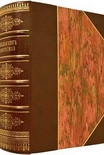Myths and Legends of China by E. Werner (free ebook reader for iphone TXT) 📗

- Author: E. Werner
Book online «Myths and Legends of China by E. Werner (free ebook reader for iphone TXT) 📗». Author E. Werner
The Kitchen-god
Tsao Chün is a Taoist invention, but is universally worshipped by all families in China—about sixty millions of pictures of him are regularly worshipped twice a month—at new and full moon. “His temple is a little niche in the brick cooking-range; his palace is often filled with smoke; and his Majesty sells for one farthing.” He is also called ‘the God of the Stove.’ The origin of his worship, according to the legend, is that a Taoist priest, Li Shao-chün by name, of the Ch’i State, obtained from the Kitchen-god the double favour of exemption from growing old and of being able to live without eating. He then went to the Emperor Hsiao Wu-ti (140–86 B.C.) Page 167of the Han dynasty, and promised that credulous monarch that he should benefit by the powers of the god provided that he would consent to patronize and encourage his religion. It was by this means, he added, that the Emperor Huang Ti obtained his knowledge of alchemy, which enabled him to make gold.
The Kitchen-god
The Emperor asked the priest to bring him his divine patron, and one night the image of Tsao Chün appeared to him.
Deceived by this trick, dazzled by the ingots of gold which he too should obtain, and determined to risk everything for the pill of immortality which was among the benefits promised, the Emperor made a solemn sacrifice to the God of the Kitchen.
This was the first time that a sacrifice had been officially offered to this new deity.
Li Shao-chün gradually lost the confidence of the Emperor and, at his wits’ end, conceived the plan of writing some phrases on a piece of silk and then causing them to be swallowed by an ox. This done, he announced that a wonderful script would be found in the animal’s stomach. The ox being killed, the script was found there as predicted, but Li’s unlucky star decreed that the Emperor should recognize his handwriting, and he was forthwith put to death. Nevertheless, the worship of the Kitchen-god continued and increased, and exists in full vigour down to the present day.
This deity has power over the lives of the members of each family under his supervision, distributes riches and poverty at will, and makes an annual report to the Supreme Being on the conduct of the family during the year, for which purpose he is usually absent for from four to seven days. Some hold that he also makes Page 168these reports once or twice or several times each month. Various ceremonies are performed on seeing him off to Heaven and welcoming him back. One of the former, as we saw, is to regale him with honey, so that only sweet words, if any, may be spoken by him while up aloft!
Ts’an Nü
In the kingdom of Shu (modern Ssŭch’uan), in the time of Kao Hsing Ti, a band of robbers kidnapped the father of Ts’an Nü. A whole year elapsed, and the father’s horse still remained in the stable as he had left it. The thought of not seeing her father again caused Ts’an Nü such grief that she would take no nourishment. Her mother did what she could to console her, and further promised her in marriage to anyone who would bring back her father. But no one was found who could do this. Hearing the offer, the horse stamped with impatience, and struggled so much that at length he broke the halter by which he was tied up. He then galloped away and disappeared. Several days later, his owner returned riding the horse. From that time the horse neighed incessantly, and refused all food. This caused the mother to make known to her husband the promise she had made concerning her daughter. “An oath made to men,” he replied, “does not hold good for a horse. Is a human being meant to live in marital relations with a horse?” Nevertheless, however good and abundant food they offered him, the horse would not eat. When he saw the young lady he plunged and kicked furiously. Losing his temper, the father discharged an arrow and killed him on the spot; then he skinned him and spread the skin on the ground outside the house to dry. As the young lady was passing the Page 169spot the skin suddenly moved, rose up, enveloped her, and disappeared into space. Ten days later it was found at the foot of a mulberry-tree; Ts’an Nü changed into a silkworm, was eating the mulberry-leaves, and spinning for herself a silken garment.
The parents of course were in despair. But one day, while they were overwhelmed with sad thoughts, they saw on a cloud Ts’an Nü riding the horse and attended by several dozens of servants. She descended toward her parents, and said to them: “The Supreme Being, as a reward for my martyrdom in the cause of filial piety and my love of virtue, has conferred on me the dignity of Concubine of the Nine Palaces. Be reassured as to my fate, for in Heaven I shall live for ever.” Having said this she disappeared into space.
In the temples her image is to be seen covered with a horse’s skin. She is called Ma-t’ou Niang, ‘the Lady with the





Comments (0)